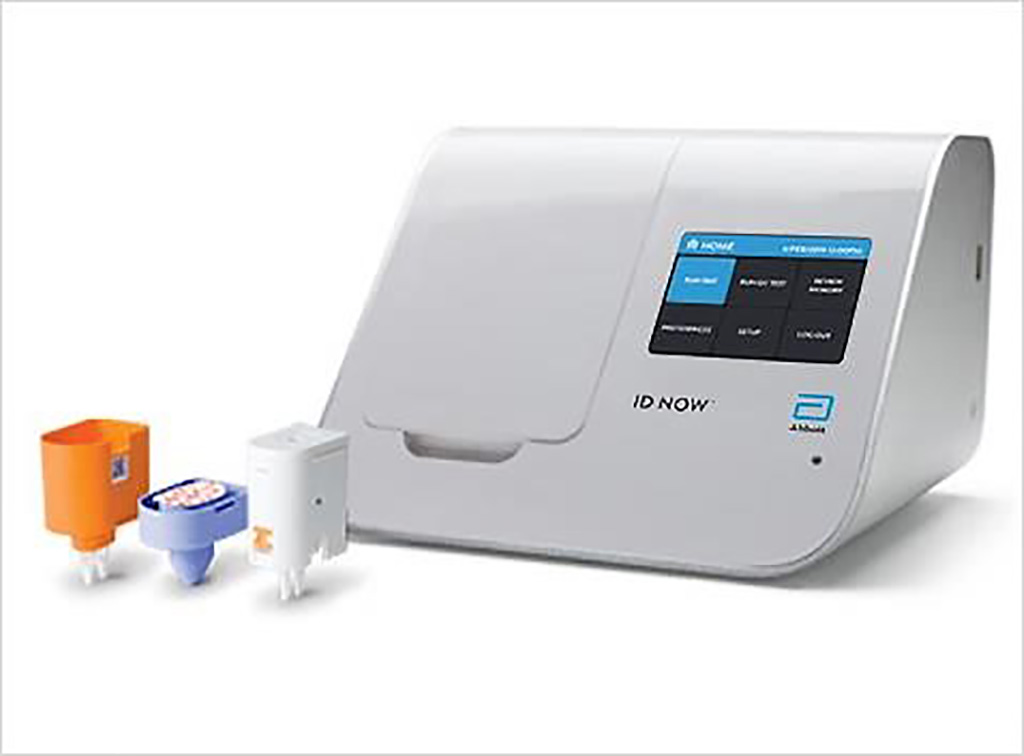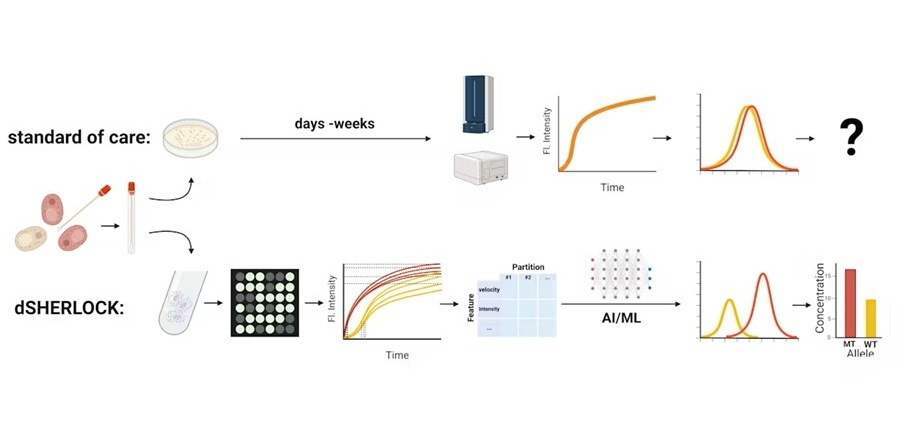Point-Of-Care Molecular Tests Compared for Pediatric Influenza
By LabMedica International staff writers
Posted on 27 Feb 2020
Respiratory infection by influenza (Flu) is capable of causing severe illness resulting in hospitalization and death in young children and the elderly. Early diagnosis of influenza virus is critical for patient management, infection control, and reduction of health care costs.Posted on 27 Feb 2020
Various influenza virus testing methods are available, including antigen detection–based assays (rapid influenza diagnostic assays (RIDTs) and immunofluorescence assays), molecular assays (rapid molecular assays, reverse transcription-polymerase chain reaction (RT-PCR), and other nucleic acid amplification assays, and viral culture

Image: The ID NOW Influenza A & B 2 assay delivers molecular flu results in 13 minutes or less on the unique ID NOW platform; making it significantly faster than other molecular methods and more accurate than conventional rapid tests (Photo courtesy of Abbott Laboratories).
Microbiologists at the Children’s Mercy Hospital (Kansas City, MO, USA) conducted a prospective clinical trial from January to April 2018 to evaluate the performance of three molecular assays and an antigen-based assay. The study samples came from 201 male and female subjects between the ages of 0 and 200 months (median = 42 months) with suspected respiratory infections. A nasopharyngeal swab specimen was obtained and saved in 3 mL universal transport medium.
Five aliquots of 300 µl were made and frozen at -70°C. Aliquots 1, 2, and 3 were thawed once before testing by ID-NOW (Abbott Laboratories, Lake Bluff, IL, USA) LIAT (Roche Molecular Systems Inc., (Indianapolis, IN, USA) and Xpert assay (Cepheid, Sunnyvale, CA, USA) at a later date. Aliquot 4 was thawed and extracted on the NucliSENS easyMag instrument (bioMérieux Inc., Durham, 90 NC, USA). Nucleic acid aliquots were prepared for performing the CDC Flu A/B PCR in a batch mode.
The authors reported that compared to the CDC PCR test, the overall sensitivities for ID Now, LIAT, and XpertXpress for flu A detection were 93%, 100%, and 100%, respectively. For flu B detection ID Now had a sensitivity of 97 %, while LIAT’s sensitivity was 94% and XpertXpress' was 92%. The specificity for flu A and B detection by all three methods was greater than 97%. The molecular assays also had higher sensitivity when compared to a historical standard-of-care test results from the BD Veritor test (Becton, Dickinson and Company, Franklin Lakes, NJ, USA) which had a flu A sensitivity of 80% and a flu B sensitivity of 67%. The specificity of the BD immunoassay was also comparable to the molecular tests.
The authors concluded the that overall, performance of all three molecular assays was found to be comparable. ID-NOW is a CLIA-waived, simple-to-use molecular assay in which positive results can be obtained within five minutes. This advantage makes the assay suitable for point-of-care testing in an outpatient setting. The study was published on January 29, 2020 in the Journal of Clinical Microbiology.
Related Links:
Children’s Mercy Hospital
Abbott Laboratories
Roche Molecular Systems
Cepheid
bioMérieux
Becton, Dickinson and Company












